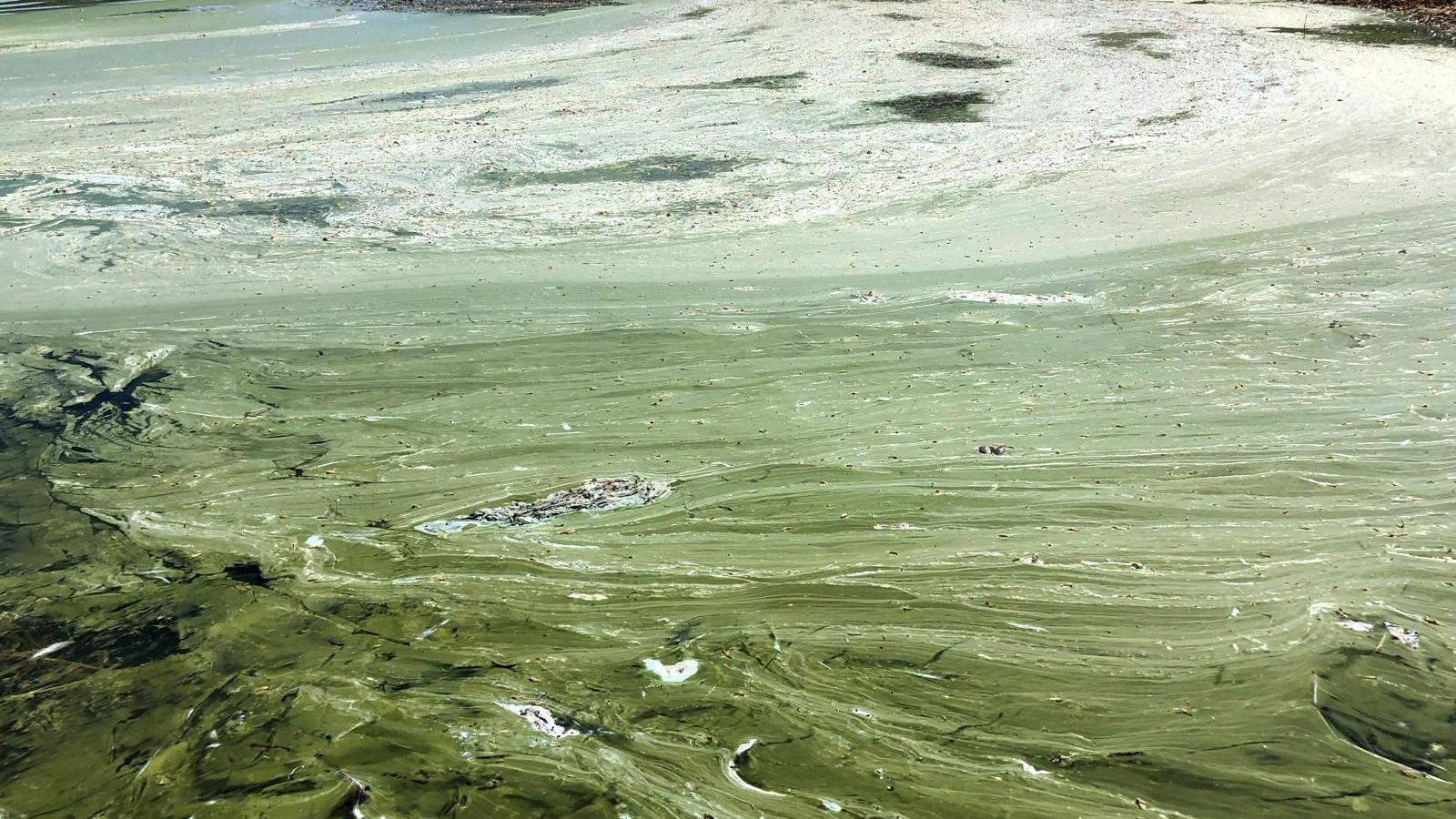
Sea snot has covered Eğirdir Lake – located in the western city of Isparta – following an algae bloom due to extreme pollution and drought prevailing in the lake recently.
As one of the country’s most significant fresh water sources, Eğirdir Lake has been struggling to maintain its vitality for a while, with the lake’s status becoming more disquieting this year.
While cyanobacteria-caused algae bloom in the lake covers the water in certain coastal areas, it can also form mucilage on lake surfaces, Dr. Erol Kesici said, a scientific advisor from an association for nature conservation.
Kesici drew attention to the pollution taking hold of the lake due to the excessive growth of the macro and micro aquatic plants and authorities being unable to bring the situation under control.
“All areas of the lake are overrun by vegetation. It will be nearly impossible for the lake's water quality to return to its previous state if preventative measures are not implemented in time,” he warned.
Indicating that some poisonous algae (cyanobacteria) also result in a decrease or even the complete disappearance of dissolved oxygen in the lake water, he further stated that this subsequently has a negative impact on the water quality.
In addition to low oxygen levels in the lake, water analysis investigations conducted in various parts of the lake revealed a growing salinity rate, particularly during these months, Kesici noted. He added that this situation not only poses a threat for the wildlife in the lake, but also gives rise to an uptick in other living species.
Eğirdir Lake has remained a living organism for millions of years, with people preserving its nature, taking its natural surroundings and internal dynamics into account, he recalled, calling on everyone to join forces to preserve the lake’s basin at present, too.
The mucilage nightmare first emerged in the Marmara Sea about three years ago and had spread over nearly the entire sea back then, and still emerges in the sea from time to time.